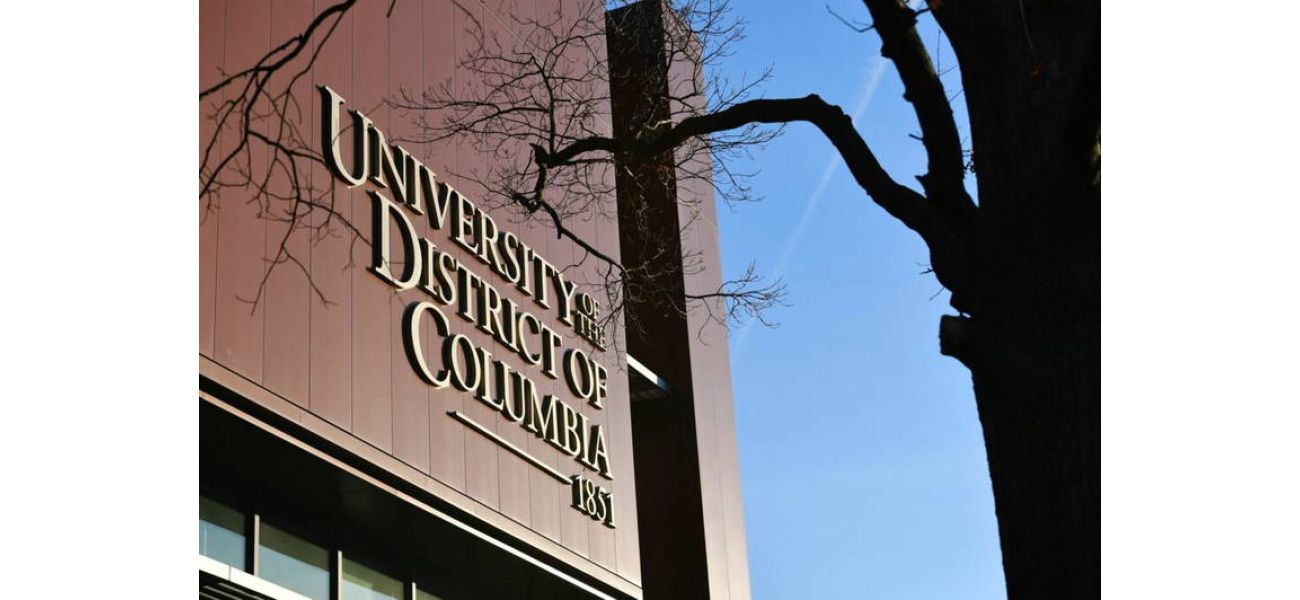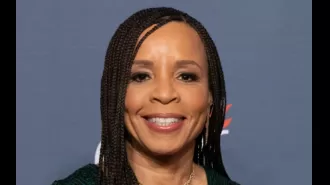UDC is making progress due to a renewed emphasis on equity and excellence.
UDC, D.C.'s only public university and the nation's only urban land-grant HBCU, has reached a significant achievement according to Sean Mitchell.
November 15th 2025.

Sean Mitchell, a writer and contributor, recently shared the exciting news about the University of the District of Columbia (UDC). As the city's only public university and the nation's sole urban land-grant HBCU, UDC has made a significant achievement, ranking #18 among all Historically Black Colleges and Universities (HBCUs) and #9 among public HBCUs in the U.S. News & World Report 2025 rankings.
This remarkable leap is a testament to UDC's commitment to student success, research innovation, and affordability. The university attributes its success to its strategic focus on expanding access and aligning programs with the workforce needs of Washington, D.C.
In a statement, UDC President Maurice D. Edington expressed his pride in the university's progress, saying, "This recognition is a reflection of the incredible strides we have made in providing a high-quality and affordable education that empowers our students and serves our city. We are proud to represent the potential of an urban, public HBCU when given the opportunity to grow."
UDC's rise in the rankings is no small feat. Just five years ago, the university was ranked in the lower third of the U.S. News HBCU list. However, with the introduction of new academic programs, increased research funding, and targeted investments in student support, UDC has seen significant improvement.
One of the key initiatives that have contributed to this success is the launch of UDC's Workforce Development and Lifelong Learning division, which has already trained over 20,000 D.C. residents in high-demand fields such as cybersecurity, green infrastructure, and healthcare. Additionally, the university's School of Engineering and Applied Sciences has expanded its undergraduate research opportunities, establishing UDC as a hub for applied innovation.
In interviews with local media, Edington emphasized UDC's mission-driven approach, stating, "We are an anchor for Washington, D.C., where education, equity, and community come together."
Students at UDC also credit the university's culture and affordability for its success. Senior biology major Aaliyah Green shared, "I had the option to attend an out-of-state university, but UDC offered me the same quality education at a fraction of the cost. It feels great to know that my school is finally receiving the recognition it deserves."
UDC's average in-state tuition is under $7,000, making it one of the most affordable four-year institutions in the region. Coupled with a student-to-faculty ratio of 14:1 and strong internship opportunities with local agencies, UDC's offerings are becoming increasingly competitive. Experts also see UDC's rise in the rankings as a sign of a changing perception of urban HBCUs.
Dr. Crystal Moore, a higher education policy analyst at the Brookings Institution, shared her thoughts on UDC's progress, stating, "UDC's growth demonstrates that with public investment and visionary leadership, historically underfunded institutions can achieve remarkable outcomes. This is not just about rankings; it's about providing access and making an impact."
As Washington, D.C. continues to evolve economically and demographically, UDC's growth represents more than just academic success. It is a story of resilience and reinvention. Edington shared, "When our students succeed, the city succeeds. We are shaping the future generation of leaders right here in the nation's capital."
This success also serves as a reminder of the importance of investing in HBCUs. As highlighted in a recent article, Tennessee owes its state HBCU over half a billion dollars, showing the need for continued support and recognition of these institutions. UDC's rise in the rankings is not only a cause for celebration but also a call to action for investing in the future of HBCUs.
This remarkable leap is a testament to UDC's commitment to student success, research innovation, and affordability. The university attributes its success to its strategic focus on expanding access and aligning programs with the workforce needs of Washington, D.C.
In a statement, UDC President Maurice D. Edington expressed his pride in the university's progress, saying, "This recognition is a reflection of the incredible strides we have made in providing a high-quality and affordable education that empowers our students and serves our city. We are proud to represent the potential of an urban, public HBCU when given the opportunity to grow."
UDC's rise in the rankings is no small feat. Just five years ago, the university was ranked in the lower third of the U.S. News HBCU list. However, with the introduction of new academic programs, increased research funding, and targeted investments in student support, UDC has seen significant improvement.
One of the key initiatives that have contributed to this success is the launch of UDC's Workforce Development and Lifelong Learning division, which has already trained over 20,000 D.C. residents in high-demand fields such as cybersecurity, green infrastructure, and healthcare. Additionally, the university's School of Engineering and Applied Sciences has expanded its undergraduate research opportunities, establishing UDC as a hub for applied innovation.
In interviews with local media, Edington emphasized UDC's mission-driven approach, stating, "We are an anchor for Washington, D.C., where education, equity, and community come together."
Students at UDC also credit the university's culture and affordability for its success. Senior biology major Aaliyah Green shared, "I had the option to attend an out-of-state university, but UDC offered me the same quality education at a fraction of the cost. It feels great to know that my school is finally receiving the recognition it deserves."
UDC's average in-state tuition is under $7,000, making it one of the most affordable four-year institutions in the region. Coupled with a student-to-faculty ratio of 14:1 and strong internship opportunities with local agencies, UDC's offerings are becoming increasingly competitive. Experts also see UDC's rise in the rankings as a sign of a changing perception of urban HBCUs.
Dr. Crystal Moore, a higher education policy analyst at the Brookings Institution, shared her thoughts on UDC's progress, stating, "UDC's growth demonstrates that with public investment and visionary leadership, historically underfunded institutions can achieve remarkable outcomes. This is not just about rankings; it's about providing access and making an impact."
As Washington, D.C. continues to evolve economically and demographically, UDC's growth represents more than just academic success. It is a story of resilience and reinvention. Edington shared, "When our students succeed, the city succeeds. We are shaping the future generation of leaders right here in the nation's capital."
This success also serves as a reminder of the importance of investing in HBCUs. As highlighted in a recent article, Tennessee owes its state HBCU over half a billion dollars, showing the need for continued support and recognition of these institutions. UDC's rise in the rankings is not only a cause for celebration but also a call to action for investing in the future of HBCUs.
[This article has been trending online recently and has been generated with AI. Your feed is customized.]
[Generative AI is experimental.]
0
0
Submit Comment





